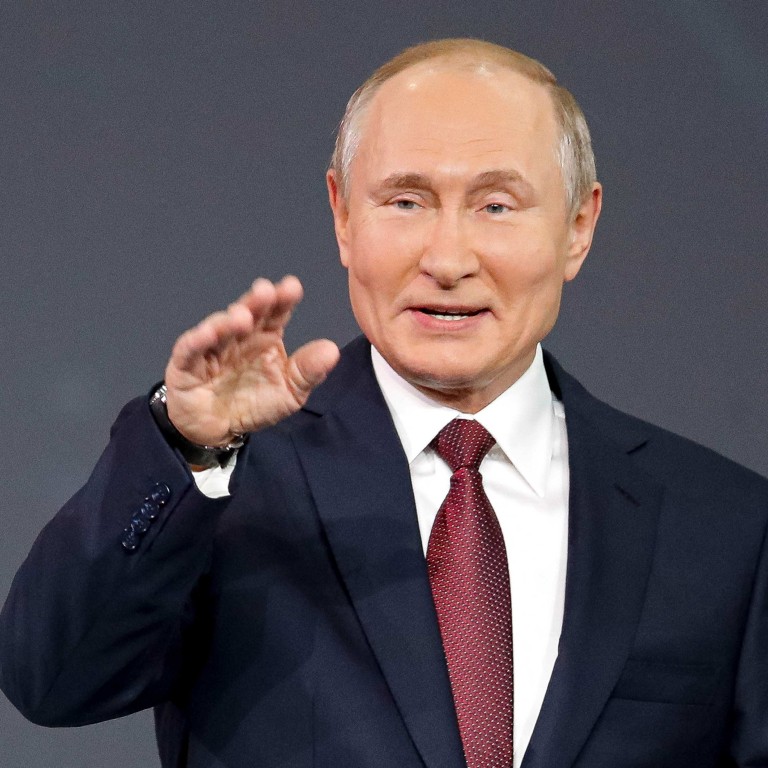
Russia and China defy attempts to destroy ties, Putin says
- Relations remain high, Russian president says ahead of key meeting with Joe Biden in Geneva
- Beijing is not a threat to Moscow, Putin says in interview with American broadcaster
“We can see attempts at destroying the relationship between Russia and China. We can see that those attempts are being made in practical policies,” he said according to a transcript of the interview released by NBC on Monday.
Putin said Russia did not consider China a threat.
“We are pleased with the … unprecedentedly high level of our relationship as it has evolved over the last few decades, and we cherish it, just like our Chinese friends cherish it,” he said.
“Why are you trying to drag us into some kind of matters that you evaluate as you see it fit for building your relationship – with China?
“China is a friendly nation. It has not declared us an enemy, as the United States has done.”
The interview, which covered a wide range of topics, including Iran, Ukraine, cyberattacks and the safety of opposition leader Alexei Navalny, came ahead of a summit between Putin and Biden in Geneva on Wednesday, their first face-to-face meeting since Biden took office in January.
In Beijing, Chinese foreign ministry spokesman Zhao Lijian said “there is no cap” for cooperation between China and Russia.
G7 summit: ‘unprecedented’ united front piles pressure on China, analysts say
During the interview, Putin said Biden’s decision to extend the New START nuclear arms treaty with Russia was a positive development in bilateral relations, but he dismissed suggestions that China should be included.
Beijing has rejected the proposal as well, saying its stockpile is far smaller than the US’ estimated 70,000 warheads and the 54,000 held by Russia. China has not disclosed the extent of its nuclear stockpile but the Stockholm International Peace Research Institute estimates that the total is about 350 warheads.
Putin said he was not alarmed by China’s military build-up. “But the most important thing is the nature and level of our relationship with China. You said China will have four aircraft carriers. How many does the United States have?”
Beijing and Moscow have been strengthening ties across the board, especially since 2014 when Russia’s annexation of Crimea led to tough economic sanctions from the West.
G7 singles out China, calls for renewed Covid-19 origin search and respect for rights in Hong Kong, Xinjiang
The two countries have also pledged to work together on space exploration. And last month, Chinese President Xi Jinping and Putin witnessed – via video link – the groundbreaking ceremony of the nuclear energy cooperation projects, the Tianwan and Xudabao nuclear power plants.
He also dismissed the question of whether Russia would weigh in if Beijing went to war over Taiwan.
“For many years, China has been developing its relationship with Taiwan. There are different assessments. China has its own assessment. The US has a different assessment. Taiwan may have its different assessment of the situation. But fortunately, hasn’t come to a military clash.”

